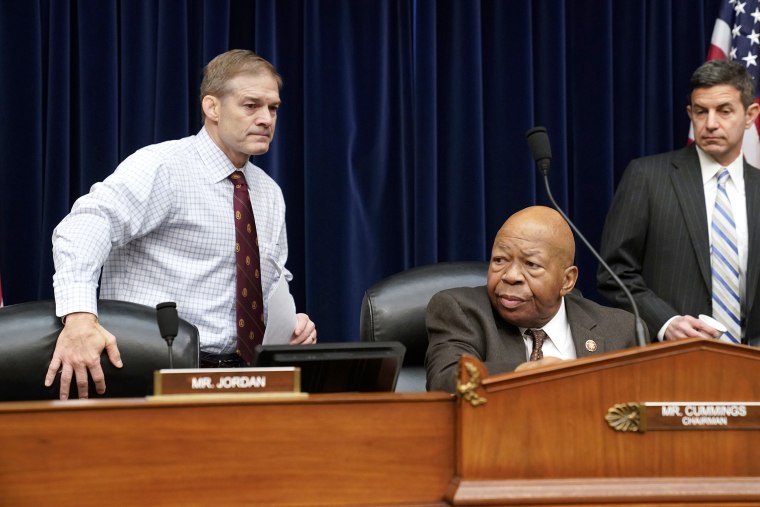Now that Michael Cohen has had his say in a public hearing before the House Oversight Committee, calls to subpoena various individuals associated with the Trump Organization to testify before Congress have begun pouring in.
At first blush, this seems like an obvious and straightforward way to investigate possible misconduct or criminal conduct: call more witnesses, and get to the truth. But the reality of summoning witnesses to testify before Congress is far from straightforward, especially when those witnesses are likely to invoke their Fifth Amendment right not to testify.
But the reality of summoning witnesses to testify before Congress is far from straightforward, especially when those witnesses are likely to invoke their Fifth Amendment right.
There are already indications that Congress understands the serious consequences that grants of witness immunity by Congress will have on future criminal prosecutions. In March of 2017, the Senate Intelligence Committee declined Michael Flynn’s offer to testify in exchange for not being prosecuted. At the time, Rep. Adam Schiff, D-Calif., — a former federal prosecutor and the then-ranking member of the House Intelligence Committee — noted the importance of consulting with the Senate Intelligence Committee and the Justice Department before conferring immunity on any witnesses. And Rep. Elijah Cummings, D-Md., who presided over Michael Cohen’s testimony on Thursday, has also acknowledged that his House Oversight Committee will have to tread carefully to avoid interfering with ongoing criminal investigations.
SIGN UP FOR THE THINK WEEKLY NEWSLETTER HERE
Here’s how witness immunity works: Figures such as the Trump Organization’s Allen Weisselberg (the CFO), Rhona Graff (Trump’s longtime assistant) and Matthew Calamari (the COO) know the answers to many questions that Congress would like to ask; Michael Cohen was clear about that. But lawyers for these individuals will counsel them to assert their Fifth Amendment rights, as virtually every white collar defense attorney would do. Even as the witnesses avow their innocence, their lawyers will argue that, not knowing everything that the prosecution (or, in this case, Congress) knows, the lawyers cannot risk having their clients inadvertently incriminating themselves.
Once a witness has invoked his or her Fifth Amendment right not to testify, their testimony comes at a cost. Congress is left with two choices: withdraw the subpoena or offer immunity to the witness. The latter route is fraught with risk. One need not look much further than the derailed prosecution of Oliver North in the late 1980s, following a Congressional investigation into North’s role in selling illegal arms to Iran in order to fund the Contras in Nicaragua. Congress gave North immunity in exchange for his testimony, ultimately sinking North’s subsequent conviction by independent counsel Lawrence Walsh.
Immunity comes in two flavors: the first, “transactional immunity,” simply means that in exchange for testimony, the witness will not be prosecuted for anything related to the subject of the testimony. That broad form of immunity has generally been cast aside in favor of the second type of immunity, a more limited form known as “use immunity.” This means that the witness’ testimony, or anything derived from that testimony, will not be used in a future prosecution of the witness. Both federal prosecutors and Congress have statutory authority to grant use immunity to a witness under Federal Rule of Criminal Procedure 18 U.S.C. § 6002.
Most prosecutors won’t bother trying to prosecute a witness who has already testified with use immunity from Congress. That’s because the U.S. Supreme Court has made clear that the prosecution bears the “heavy burden” to affirmatively “prove that the evidence it proposes to use is derived from a legitimate source wholly independent of the compelled testimony.”
Lawrence Walsh, the former independent counsel, himself noted to the Congressional committees that conferred immunity on witnesses in the Iran-Contra hearings, “[A]ny grant of use and derivative use immunity would create serious — and perhaps insurmountable — barriers to the prosecution of the immunized witness." Walsh nonetheless soldiered on and convicted North at trial, only to see the conviction reversed when the appellate court ruled that the prosecution had violated the immunity statute by refreshing witness’ memories using North’s immunized testimony.
Finally, even if Congressional investigators and prosecutors agree that giving immunity to individuals such as Rhona Graff and Allen Weisselberg might be worthwhile, there’s no guarantee that their testimony will be truthful or helpful. That’s why immunity should not be conferred unless Congress has some idea what that testimony will be. The witness’ veracity and helpfulness is usually determined during one or more “proffer” sessions, in which the witness speaks with investigators or prosecutors under a less formal, but still enforceable, use immunity agreement. Only if the government is satisfied with the proffers will it then confer statutory use immunity on the witness.
In March 2017, Donald Trump tweeted, “Mike Flynn should ask for immunity in that this is a witch hunt…!” But the president might be careful what he wishes for. If his associates are granted immunity, he may soon be regaling them with another Trump refrain: "It’s called flipping, and it almost ought to be illegal."

